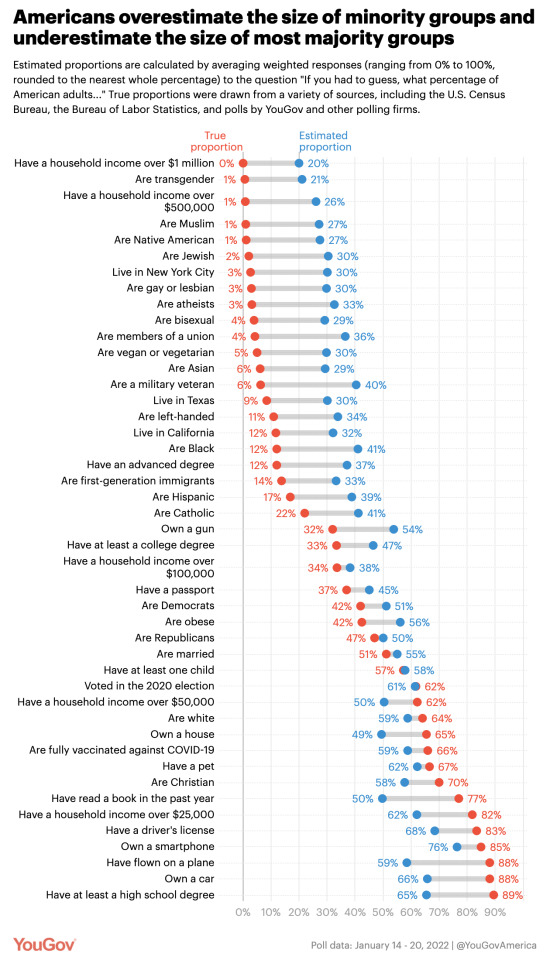#majority
Text

“Whenever you find yourself on the side of the majority, it is time to reform (or pause and reflect).”
― Mark Twain
original auntieblues
#mark twain#individuality#majority#minority#pause#reflect#wisdom#landscape#nature#auntieblues#quotes#sunrise#mountains#ai art
24 notes
·
View notes
Text

More doodles
10 notes
·
View notes
Text

Gabriel Palencia Ubanell: Martyrdom of Santa Eulalia
"The man who stands with God is always in the majority." John Knox
#quotes#The man who stands with God is always in the majority#stand with God#man#majority#God#Jesus#Christ#Jesus Christ#Father#Son#Holy Spirit#Holy Trinity#christian religion#faith#hope#love#stress reliever
53 notes
·
View notes
Text
When great changes occur in history, when great principles are involved, as a rule the majority are wrong.
Eugene Debs
28 notes
·
View notes
Text





[I've loaded the majority of my trunk with ingredients. Oh, that's good. That'll be fine. It’s a long story. I’ll make it short as I can. Alright, brother, now we're into it. Crawfish mac and cheese. Mac and cheese.]
#s37e02 triple d nation - po' boys#guy fieri#guyfieri#diners drive-ins and dives#long story#crawfish mac#majority#trunk#ingredients#brother#cheese
22 notes
·
View notes
Text
The Majority Is Not Always Right
Most of the inhabitants of the Earth fell into the temptation of worshiping idols, and no one got rid of it, except for the Ḥunāfāʾ (ie: a people who were not Jews, Christians, or worshipers of Idols), followers of the religion of Ibrāhīm peace be upon him.
فأكثر أهل الأرض مفتونون بعبادة الأصنام والأوثان، ولم يتخلّص منها إلا الحُنفاء أتباع مِلّة إبراهيم عليه السلام.
Ibn al-Qayyim, Iġāthah al-Lahfān fī Maṣāʿid al-Shayṭān 2/976
ابن القيم، إغاثة اللهفان في مصايد الشيطان ط عالم الفوائد ٢/٩٧٦
https://shamela.ws/book/18612/1041
Telegram: https://t.me/aljadwal
Tumblr: https://al-jadwal.tumblr.com
5 notes
·
View notes
Text
Raaandom thoughts before sleep :
I define adulthood as when the brain is properly developed, and I had Thoughts™ about this :
- Defining adulthood by the moment puberty is reached is fucked up and defines kids/people by the some purpose of reproduction and exploitation. It's capitalism and grooming all in one. I don't care if you call them teenagers, for me they're still kids and must be protected by the same laws.
- Giving an arbitrary age like 18 or 16 or 21 for adulthood is a capitalistic invention that has no basis on reality. In connection to the point above, it means making kids ("non-adults") sexually available to adults, encouraging them to make easy money via prostitution and drug trafficking and such because their brains aren't fully matured yet, yet we put powerful and dangerous things between their hands : alcohol, cars, sex, body modifications, pregnancies, political parties cards (aka political sects/grooming). Like, it's a recipe for them to risk their lives, ruin them or make overall choices they're not mature enough to make (voting included?)
- "Sexual majority" is bullshit. Like. Idk. If you don't feel ready to make phone calls or the laundry or find a job you probably aren't the most ready either to be fully enlightened about the sex you're having, consent, your own feelings, social pressure etc
- My god and please stop medicalizing healthy kids as well.
- In theory, I think you're an adult when you start to feel more mature, especially in comparison to younger people, more protective and more confident. Like you can have your shits slightly together and feel equipped to deal with most life. But that's not something measurable or which we can create laws about. Hence why brain maturation high average should be the majority instead.
- ?? I guess they may try joins and alcohol in their teens under supervision of older people so it's not often, they don't get rape drugged or in weird sexual situations and they get their experience but with someone to look up for them. Now it's problematic if the "older people" is a rapist.
-???? Something something social media, public image, money and screentimes and capitalism needing to be burn to the ground and doing crimes for fun???? Yeah anyway, going to bed. Just dropping this here. Feel free to barge in a'd debate and add your opinion but this doesn't claim to be a smart take. I'm just using my exhausted clown wisdom.
#yes talking to my adoptive little highschooler sisters yesterday made me think waaay back. You have a pea brain at 15#you're just better at communicating than a 5yo and speal your thoughts a bit better but you don't know shit#JUST SO YOU WAIT for the next 10y of traumas before you think you know shit#adulthood#adulting#teen pregnancy#majority#growing up
2 notes
·
View notes
Text
So if a woman is an "adult human female" is a 19 year-old female person a woman? No, she's not, not in Japan anyway; in Japan the majority of age is 20, a 19 year-old is not adult and therefore cannot be a woman
13 notes
·
View notes
Photo

The vast majority of named demons based on how much I wanna beat the shit out of them , Meme by Weeblmao.com
#Based#beat#Demons#DSMemes#KimetsuNoYaiba#KimetsuNoYaibaMeme#KimetsuNoYaibaMemes#KNY#KNYMeme#majority#named#shit#vast#wanna
5 notes
·
View notes
Note
Why do you not follow me back? I show you love. I show you support.
Don't know who you are if you're on anon , I also tend to not follow males as I don't want my dash flooded with ONLY porn
Welcome to get off anon on dm me about it if it really bothers you that much 😅
#anon#guys make me uncomfortable#majority#of the time#and I'd rather not fuck with it#also#i don't follow people not interested in supporting where it matters
8 notes
·
View notes
Text
Food for Thought
“Children [...] need both windows and mirrors in their lives: mirrors through which you can see yourself and windows through which you can see the world. And minority children have not had mirrors. That has placed them at a disadvantage. If you want to call white children majority children — [they] have had only mirrors. That has placed them at a disadvantage also.”
– Lucille Clifton
#racism#minority#majority#windows and mirrors#see oneself#see the world#disadvantages#Lucille Clifton
3 notes
·
View notes
Text

#poem#writeblr#writing#poems on tumblr#write#poetry#writers and poets#poet#spilled ink#writer#writerscommunity#writerscorner#writerscreed#use the poeticstories tag to get you work seen here#poetic stories#poeticstories#poetic#silent#majority#smittenbypoetry#poetryportal
6 notes
·
View notes
Text
Do y’all ever come up with a really good idea for your OCs and just hehehehehHEHEHEHEHEHE
#brain is braining#majority#what I’ve written is probably heresy but I’m going to hell anyway#AHAHAHAHAHAHA
5 notes
·
View notes
Text
Weeding in the park (verse)

Unremovable weeds and garbage bags
Work completed in over an hour
At the end of the ceremony, a young man made a motion, ``Let's spray herbicide.''
We haven't used herbicides in years, and one old man objected.
Old man: If health damage occurs, can you take responsibility?
Young man: I'll take it.
Me: Children are coming to play.
A group where the elderly make up the majority. The motion was enacted.
Weeding the park for what?
Isn't it to protect a part of democracy?
You should refrain from using easy herbicides because it is troublesome.
Are people who think so in the minority?
(2023.08.13)
公園の除草
1時間以上かけて作業が終わり、
終礼になったとき、若造が「除草剤を撒こう」と動議を出した。
これまで数年除草剤は使わず、反対する老人がいた。
老人:健康被害が出たら、責任を取れるのか?
若造:取ります。
私:子供が遊びにくるぞ。
なにぶん老人が多数を占める集団。動議は成立した。
何のための公園の除草か?
民主主義の一端を守るためではないのか?
面倒だからと安易な除草剤使用は慎むべし。
そう考える人は少数派か。
4 notes
·
View notes
Link
By: Taylor Orth
Published: Mar 16, 2022
When it comes to estimating the size of demographic groups, Americans rarely get it right. In two recent YouGov polls, we asked respondents to guess the percentage (ranging from 0% to 100%) of American adults who are members of 43 different groups, including racial and religious groups, as well as other less frequently studied groups, such as pet owners and those who are left-handed.
When people’s average perceptions of group sizes are compared to actual population estimates, an intriguing pattern emerges: Americans tend to vastly overestimate the size of minority groups. This holds for sexual minorities, including the proportion of gays and lesbians (estimate: 30%, true: 3%), bisexuals (estimate: 29%, true: 4%), and people who are transgender (estimate: 21%, true: 0.6%).
It also applies to religious minorities, such as Muslim Americans (estimate: 27%, true: 1%) and Jewish Americans (estimate: 30%, true: 2%). And we find the same sorts of overestimates for racial and ethnic minorities, such as Native Americans (estimate: 27%, true: 1%), Asian Americans (estimate: 29%, true: 6%), and Black Americans (estimate: 41%, true: 12%).

A parallel pattern emerges when we look at estimates of majority groups: People tend to underestimate rather than overestimate their size relative to their actual share of the adult population. For instance, we find that people underestimate the proportion of American adults who are Christian (estimate: 58%, true: 70%) and the proportion who have at least a high school degree (estimate: 65%, true: 89%).
The most accurate estimates involved groups whose real proportion fell right around 50%, including the percentage of American adults who are married (estimate: 55%, true: 51%) and have at least one child (estimate: 58%, true: 57%).
Misperceptions of the size of minority groups have been identified in prior surveys, which observers have often attributed to social causes: fear of out-groups, lack of personal exposure, or portrayals in the media. Yet consistent with prior research, we find that the tendency to misestimate the size of demographic groups is actually one instance of a broader tendency to overestimate small proportions and underestimate large ones, regardless of the topic.
If exaggerated perceptions of minority groups’ share of the American population are due to fear, we would expect estimates of those groups’ share that are made by the groups’ members to be more accurate than those made by others. We tested this theory on minority groups that were represented by at least 100 respondents within our sample and found that they were no better (and often worse) than non-group members at guessing the relative size of the minority group they belong to.
Black Americans estimate that, on average, Black people make up 52% of the U.S. adult population; non-Black Americans estimate the proportion is roughly 39%, closer to the real figure of 12%. First-generation immigrants we surveyed estimate that first-generation immigrants account for 40% of U.S. adults, while non-immigrants guess it is around 31%, closer to the actual figure of 14%.
Although there is some question-by-question variability, the results from our survey show that inaccurate perceptions of group size are not limited to the types of socially charged group divisions typically explored in similar studies: race, religion, sexuality, education, and income. Americans are equally likely to misestimate the size of less widely discussed groups, such as adults who are left-handed. While respondents estimated that 34% of U.S. adults are left-handed, the real estimate lies closer to 10-12%. Similar misperceptions are found regarding the proportion of American adults who own a pet, have read a book in the past year, or reside in various cities or states. This suggests that errors in judgment are not due to the specific context surrounding a certain group.

Why is demographic math so difficult? One recent meta-study suggests that when people are asked to make an estimation they are uncertain about, such as the size of a population, they tend to rescale their perceptions in a rational manner. When a person’s lived experience suggests an extreme value — such as a small proportion of people who are Jewish or a large proportion of people who are Christian — they often assume, reasonably, that their experiences are biased. In response, they adjust their prior estimate of a group’s size accordingly by shifting it closer to what they perceive to be the mean group size (that is, 50%). This can facilitate misestimation in surveys, such as ours, which don’t require people to make tradeoffs by constraining the sum of group proportions within a certain category to 100%.
This reasoning process — referred to as uncertainty-based rescaling — leads people to systematically overestimate the size of small values and underestimate the size of large values. It also explains why estimates of populations closer to 0% (e.g., LGBT people, Muslims, and Native Americans) and populations closer to 100% (e.g., adults with a high school degree or who own a car) are less accurate than estimates of populations that are closer to 50%, such as the percentage of American adults who are married or have a child.
Does correcting misperceptions of group size change peoples’ attitudes on related issues? Current research suggests it does not. In a series of studies (one of which used a survey fielded by YouGov), political scientists John Sides and Jack Citrin attempted to correct inaccurate beliefs about the size of the U.S. foreign-born population, both subtly, by embedding the accurate information in a news story, and explicitly, by providing survey respondents with Census Bureau estimates. They found that while providing this information did somewhat improve people’s knowledge of the number of immigrants in America, they did not make people more supportive of immigration.
Below we display median estimates of group sizes, which tended to be more accurate than mean estimates, but with differences from the true estimates in the same direction.

Methodology: This article includes findings from two U.S. News surveys conducted by YouGov on two nationally representative samples of 1,000 U.S. adult citizens interviewed online from January 14-20, 2022. The first survey included questions on groups involving race, education, income, family, gender, and sexuality, while the second survey included questions on religion, politics, and other miscellaneous groups. The samples were weighted according to gender, age, race, and education based on the 2018 American Community Survey, conducted by the U.S. Census Bureau, as well as 2016 and 2020 Presidential votes (or non-votes). Respondents were selected from YouGov’s opt-in panel to be representative of all U.S. citizens. Real proportions were taken from a variety of sources, including the U.S. Census Bureau, the Bureau of Labor Statistics, YouGov’s internal poll results, and the results of other well-established polling firms. Most estimates were collected within the past three years; the oldest is from 2009. Because the real estimates presented cover a range of time periods, they may differ from actual population sizes at the time our survey was conducted.
#Taylor Orth#statistics#demographics#minority#majority#minority groups#majority groups#demographic groups#human psychology#psychology#religion is a mental illness
12 notes
·
View notes
